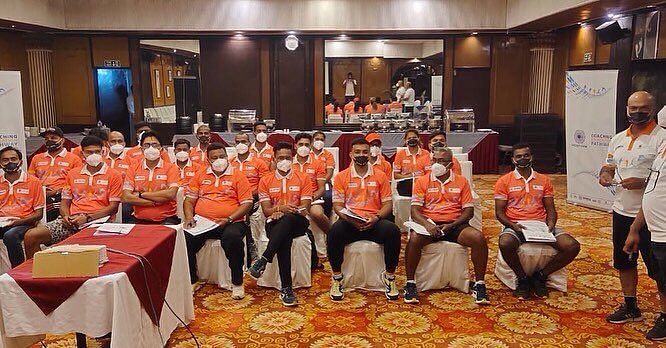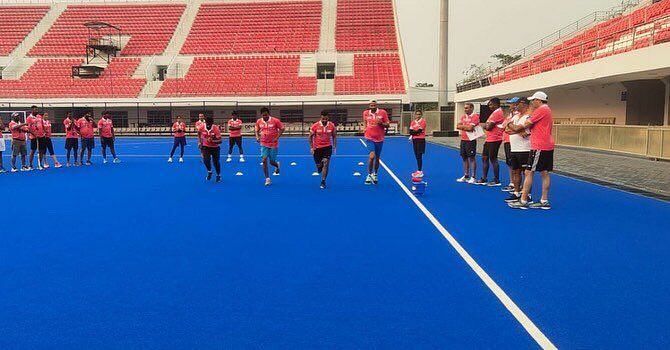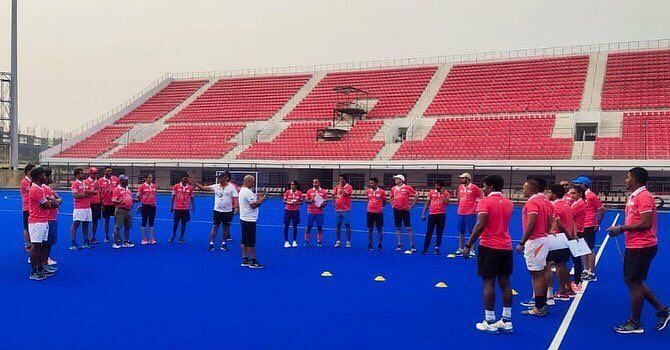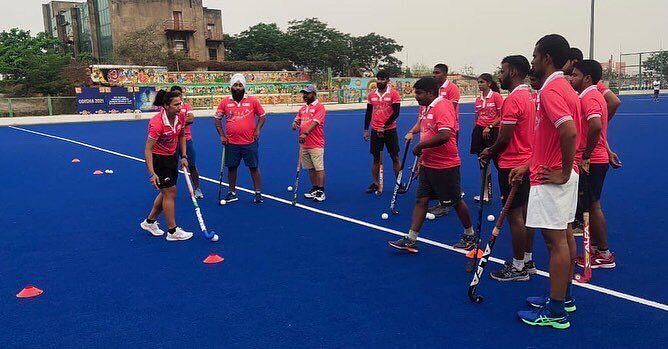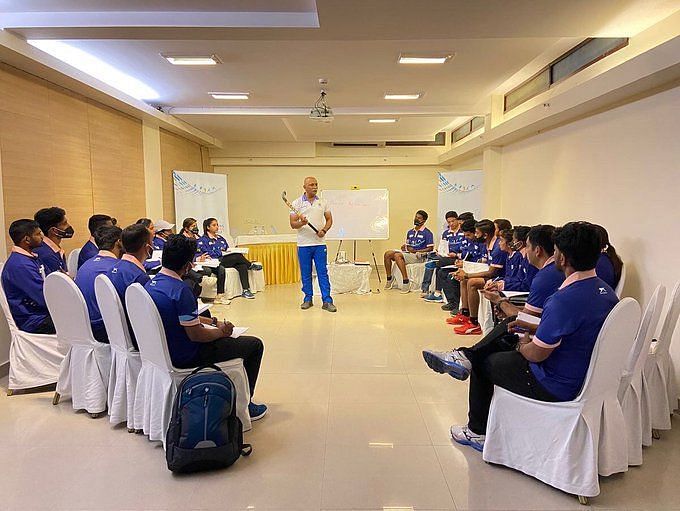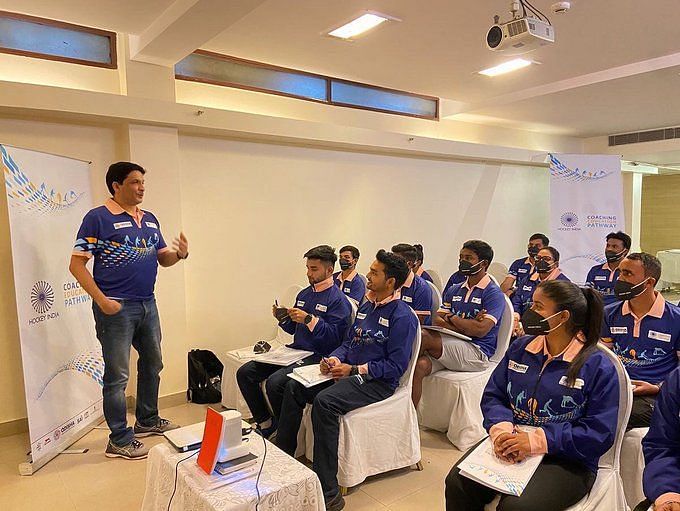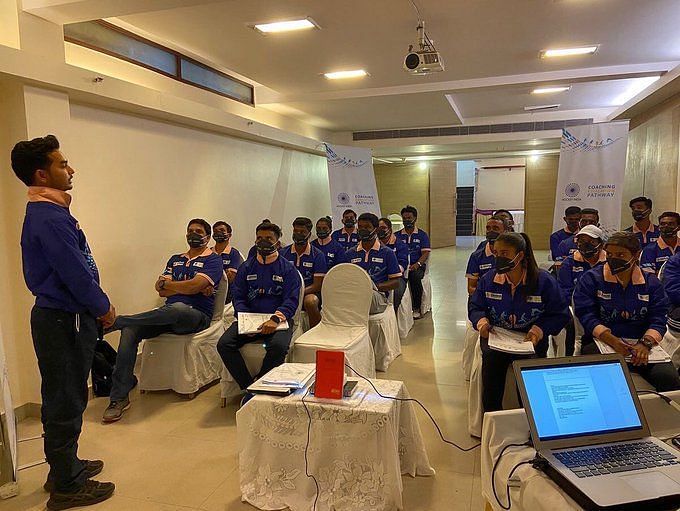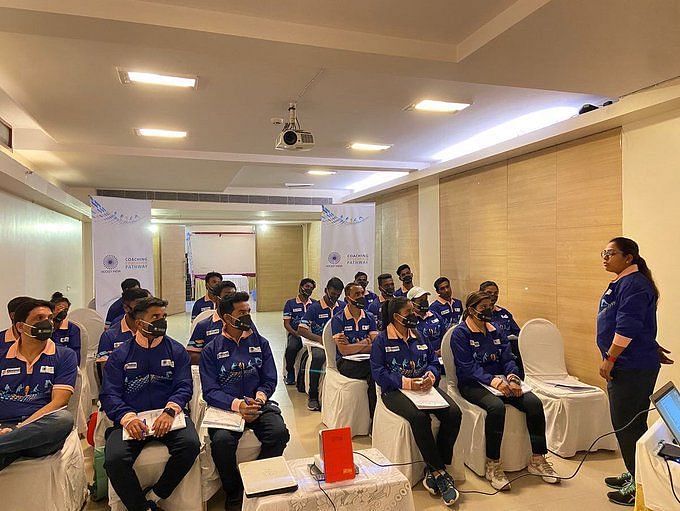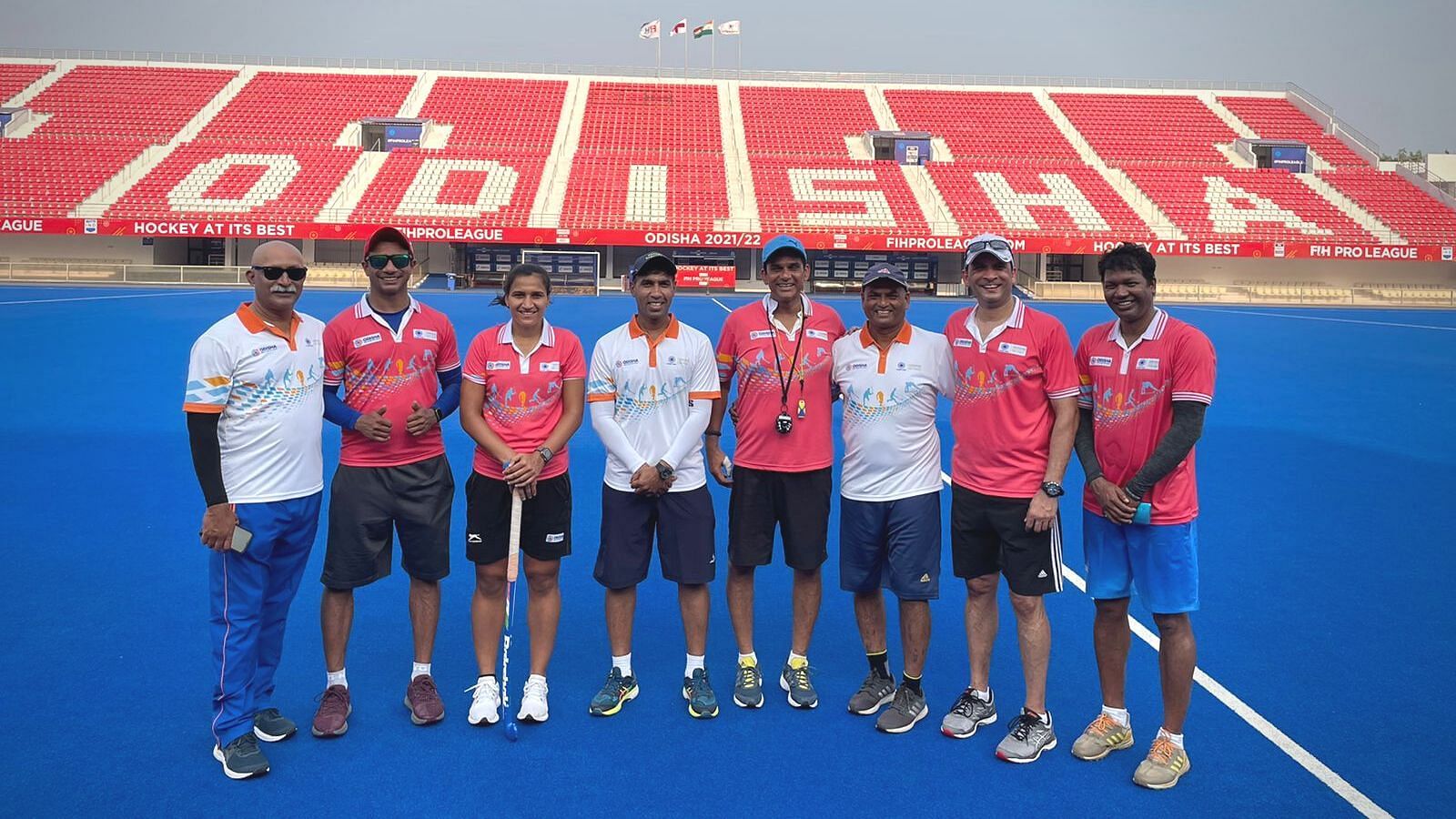
Hockey India Coaching Education Pathway empowering coaches across the country
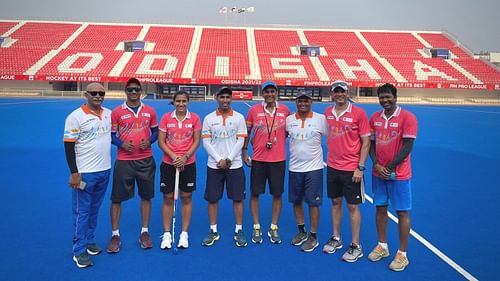
Three years, 609 certified coaches and more than 1200 participants - the Hockey India Coaching Education Pathway has been a blessing for hockey coaches across India. Be it an international hockey player or be it someone who hasn’t played hockey, this coaching education pathway has opened doors for everyone to become a hockey coach.
The course, which was started by Hockey India in March 2019 to educate and empower hockey coaches across the country through certifications, has grown by leaps and bounds in the last three years.
The pathway has certified some of the big names in hockey like, PR Sreejesh, Indian Women's Team captain Rani, Deepak Thakur, Bharat Chhetri, Shivendra Singh, Tushar Khandker, Devesh Chauhan, Deepika, Dr. AB Subbaiah, Helen Mary, Pritam Siwach, Sabu Varkey, Samir Dad, Lazarus Barla, Adrian D’Souza, Edgar Mascarenhas, Asunta Lakra, Anil Aldrin, Prabhjot Singh, Gavin Fernandes, Rajnish Mishra, Vikram Pillay, Poonam Rani and Yedala Soundarya among others.
Also Read: https://www.sportskeeda.com/hockey/two-silvers-twenty-years-apart-how-pritam-siwach-inspired-neha-goyal-to-rise-above-circumstances
In this article, we will understand the course in detail with inputs from former international players and coaches.
What is Hockey India Coaching Education Pathway?
As the name suggests, this course is a pathway to becoming a coach in India. The Hockey India Coaching Education Pathway is divided into seven levels, HI Level ‘Basic’, HI Level ‘1’, HI Level ‘2’, FIH Level ‘1’, FIH Level ‘2’ and FIH 'High Performance'.
While HI Level ’Basic' is an online course as it only explains the basics of the game, all other courses are held in offline mode. At every level, candidates have to go through a rigorous set of evaluations which includes classroom interaction, on-field coaching, project work, on-course assignments, post-course assignments, etc.
It is a simplified education structure that aims to help develop coaches from the grassroots level into world-class coaches at the highest performance/international level. Once a candidate progresses from the Hockey India Coaching Education Pathway, they are then eligible to enroll for the FIH Academy Level 1 Course.
Till date, 347 and 136 coaches have acquired HI Level ‘1’ and ‘2’ respectively, while the FIH Level ‘1’ and ‘2’ courses have been cleared by 97 and 29 coaches respectively. Before, our coaches had to travel abroad to get these certifications.
Now, with Hockey India conducting these courses in our country, it has enabled more coaches to participate in this, which in return will help them create a bigger pool of coaches.
By doing this, the coaches not only save time and money, but also get the same knowledge and exposure in their own city or state.
Also Read: https://www.sportskeeda.com/hockey/news-hockey-india-announces-india-a-men-s-women-s-core-probable-sardar-singh-deepak-thakur-turn-coaches?ref=hockeypage
The prime objective of this pathway is to improve the knowledge base of current coaches in India and provide a structured coaching pathway for young coaches. Providing uniformity across different regions, states and academies is what this course aims for.
Why this Pathway?
Former international and 2016 Olympian Deepika Thakur, who is also a FIH Level ‘1’ coach, has rated this course very highly. She believes that hockey has become extremely fast.
The way it was played before and the way it’s being played now is completely different. Teams have adapted to different approaches and are playing with different game plans. Hence, it becomes highly necessary for former coaches and players to educate themselves and stay updated with the new trends.
When asked what difference she found in the course, she said,
“When we played, we only used to think as players. Players and coaches have different mindsets. They both think in different ways. Coaches keep an eye on the minute details that happen on the pitch, but players only do what is said by the coach. They play according to the coach’s game plan.”
“Taking my example, when I was a player, I used to listen to the coach only, and didn’t have an eye for detail on why something was happening and why it was not. But, after becoming a coach, other than coaching on the field too, I have to take care of different things like motivating a player, improving individual skillsets, explaining a player his/her mistakes, finding a proper position for a player to play, so things completely take a U-turn when you become a coach from a player."
"At least for me, the improvement has been immense, and I think all coaches who want to update themselves should take up this course,” added Deepika, who is now a coach at the Sports Authority of India, Sonipat.
This pathway not only tells us about the game, it also explains all the different facets that are needed to be a hockey player. Other than new game techniques, making players comfortable on and off the pitch is the most essential skill that is taught to the coaches in this Coaching Education Pathway. How to start with a player from scratch is also taught in this.
Also Read: https://www.sportskeeda.com/hockey/fih-women-s-junior-world-cup-2022-team-india-s-schedule-timings-streaming-details?ref=hockeypage
Former Indian Goalkeeper and Coach, Dr. AB Subbaiah, also had some similar opinions. He said,
“We international players played at the top level for many years and then became coaches. We understand what happens at the top level, but when it comes to grassroots coaching, we sometimes fumble because we have been away from the basics for a long time. At National Camps, we focus on skill, technique, game movements, etc. So, to build a player from scratch and to keep his basics very strong, this coaching education pathway is extremely helpful."
We asked Subbaiah, who is also an FIH Level ‘1’ certified coach, if being a goalkeeper has any difficulties in becoming a normal coach. He completely denied the statement as he went on to explain that,
“A goalkeeper is the only one who can see all the other 21 players on the pitch. He also gets time to observe the game. So I feel like the goalkeeper is the best observer of the game. No player can depict and explain as good as a goalkeeper after a match. If a goalkeeper is smart, he can surely be a good coach.”
He gives the example of former Indian goalkeeper, Jude Menezes, who has become the Head Coach of the Japan National Women’s Team and another former India goalkeeper Cedric D’Souza was once also the head coach of the Senior Indian Men’s Team.
Does this course have any drawbacks as it allows anyone and everyone to get certified?
The best part of this course is that you can get certified by FIH even if you haven’t played hockey at a good level. But do they have any drawbacks? Both Subbaiah and Deepika refuted this.
“Nobody is a perfectionist. It all depends on how you intend to learn. It’s all about your passion for the game. If you are a good learner, you will definitely become a good coach, it doesn’t matter in what position or in which level you have played,” opined Subbaiah.
Asked if playing hockey is important to become a coach, Deepika smiled and said that she has played the game and hence understands it better. It’s nowhere written that a good player needs to be a good coach. Someone who has followed the game for a long time and has at least a little bit of game sense can surely become a good coach.
“The most important thing is passion. But when you play, you can relate to the difficult situations in the game, as you might have gone through it before. That is the biggest advantage someone will have who has played the game at a good level," said Deepika.
50% reservation for women coaches
To encourage women coaches to take up the coaching job, Hockey India has reserved 50% of seats in every course, for women. Deepika hailed this initiative by the federation. This is an out-of-the-box initiative that will ultimately see more coaches coming into the picture.
“It’s extremely encouraging that so many women coaches are taking up this course. In almost all the courses I have attended, I have seen women participate in a good number. Women do not take up the sport thinking there is no future if they don’t succeed in playing, but with this initiative, many young girls and former women internationals are taking up this course which will eventually help them to earn their bread and butter by becoming a coach,” said Deepika.
What do grassroots coaches in India lack and is this pathway bridging the gap?
“Yes, it definitely is. Here, anyone and everyone can come and learn. All those who are teachers in schools can learn the basics from this course and use it in their coaching. I believe if a player has good basics, he will definitely be a top player. There are players who play for just 2-3 years and then vanish, that’s because they don’t have the basics. And, basics can’t be corrected at an older age. So, to educate those coaches in the country, who teach kids, is extremely important,” said the former Kalinga Lancers mentor and coach, Subbaiah.
“These kind of coaching education pathways have been going on in European countries for a long time, because of which, their grassroots structure is so strong. In India, we are a bit late, but, better late than never. We will surely have good coaches from this program,” added the former goalkeeper.
Hockey India aims to use similar terminology and techniques to all the players across India, and hence this course is important as it educates coaches to use the same terminology across regions.
Subbaiah strongly recommends all coaches who are employed by state governments, academies, and clubs to take up this course, as he feels that this course will surely help develop international standard coaches in the future.
